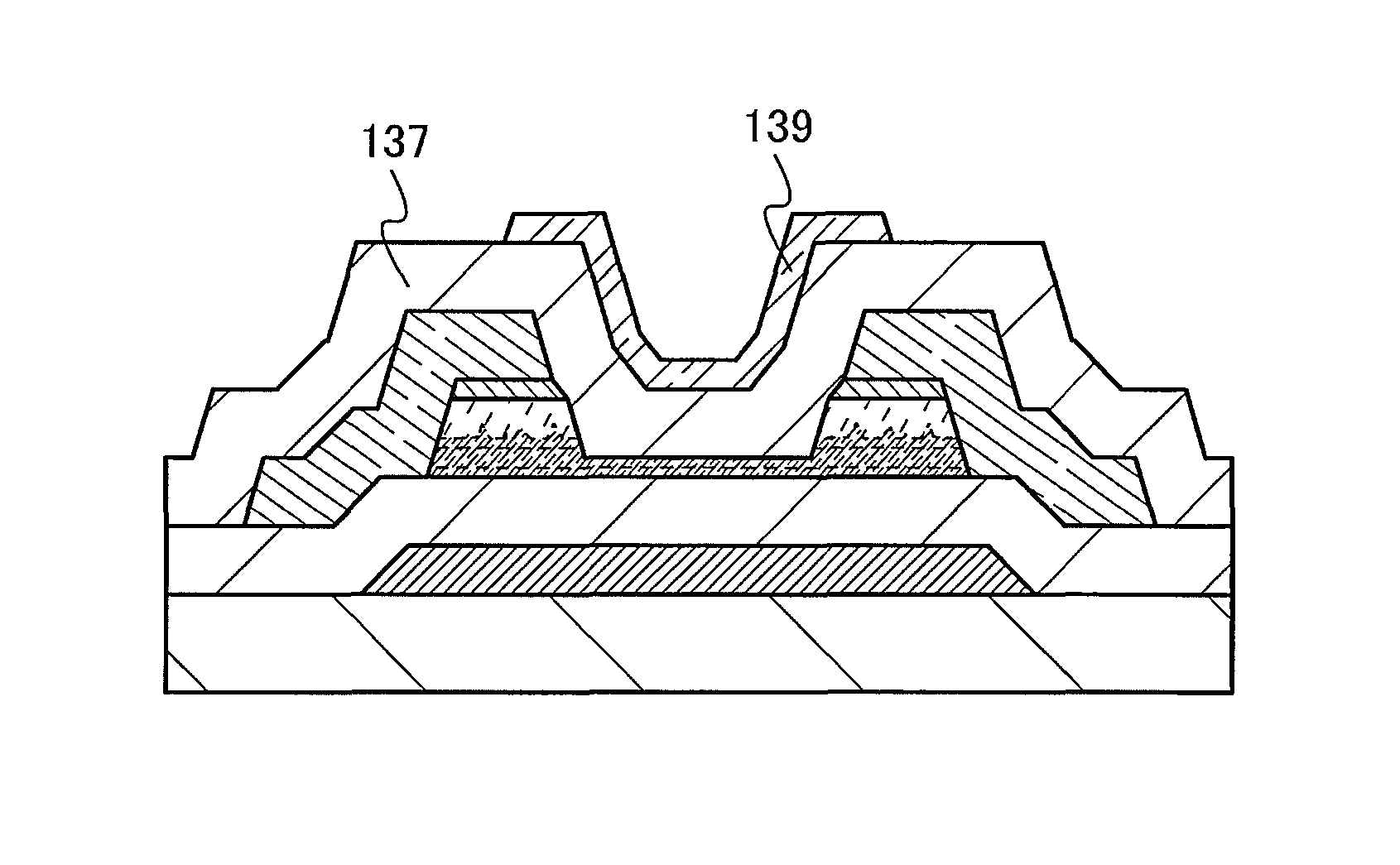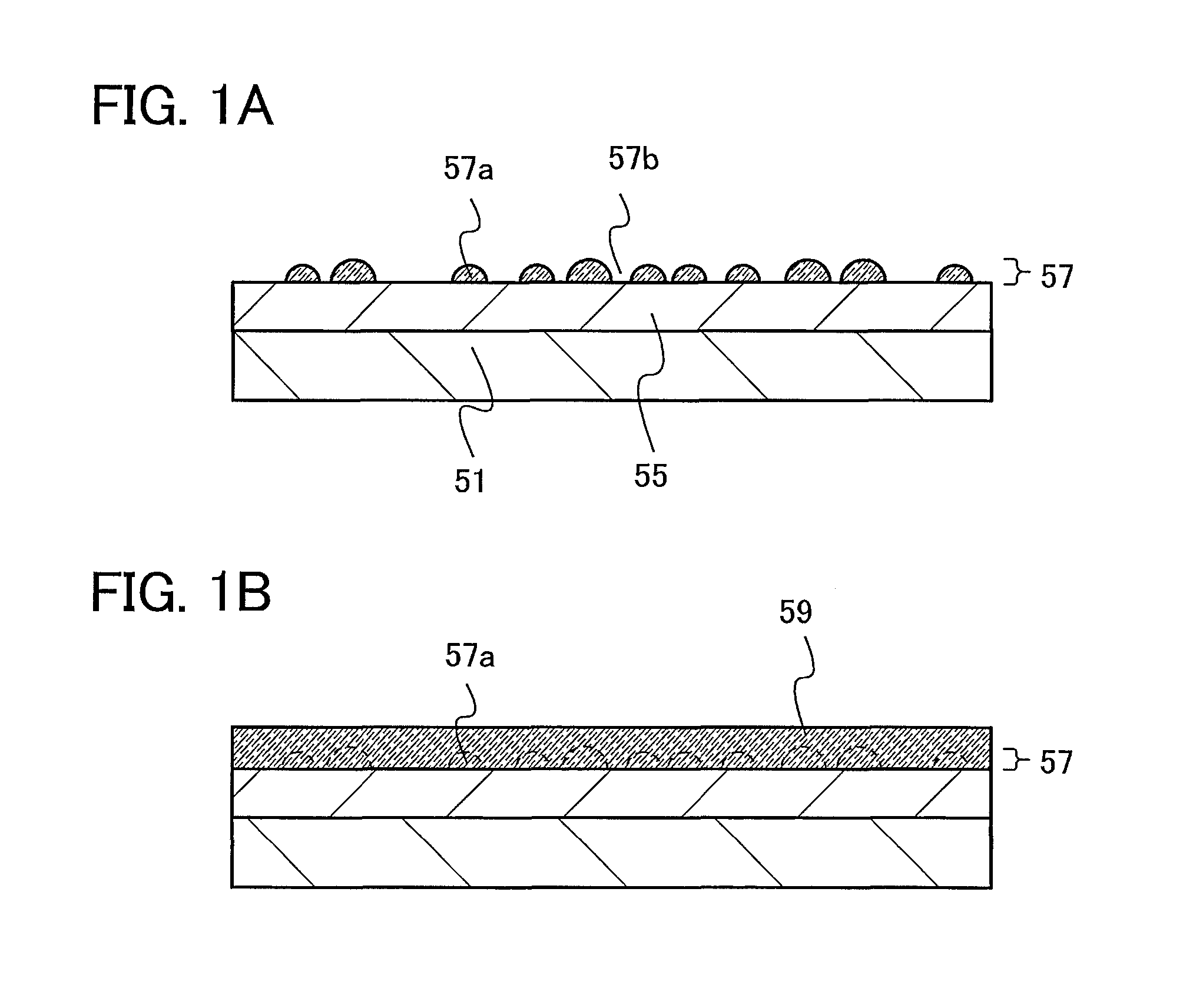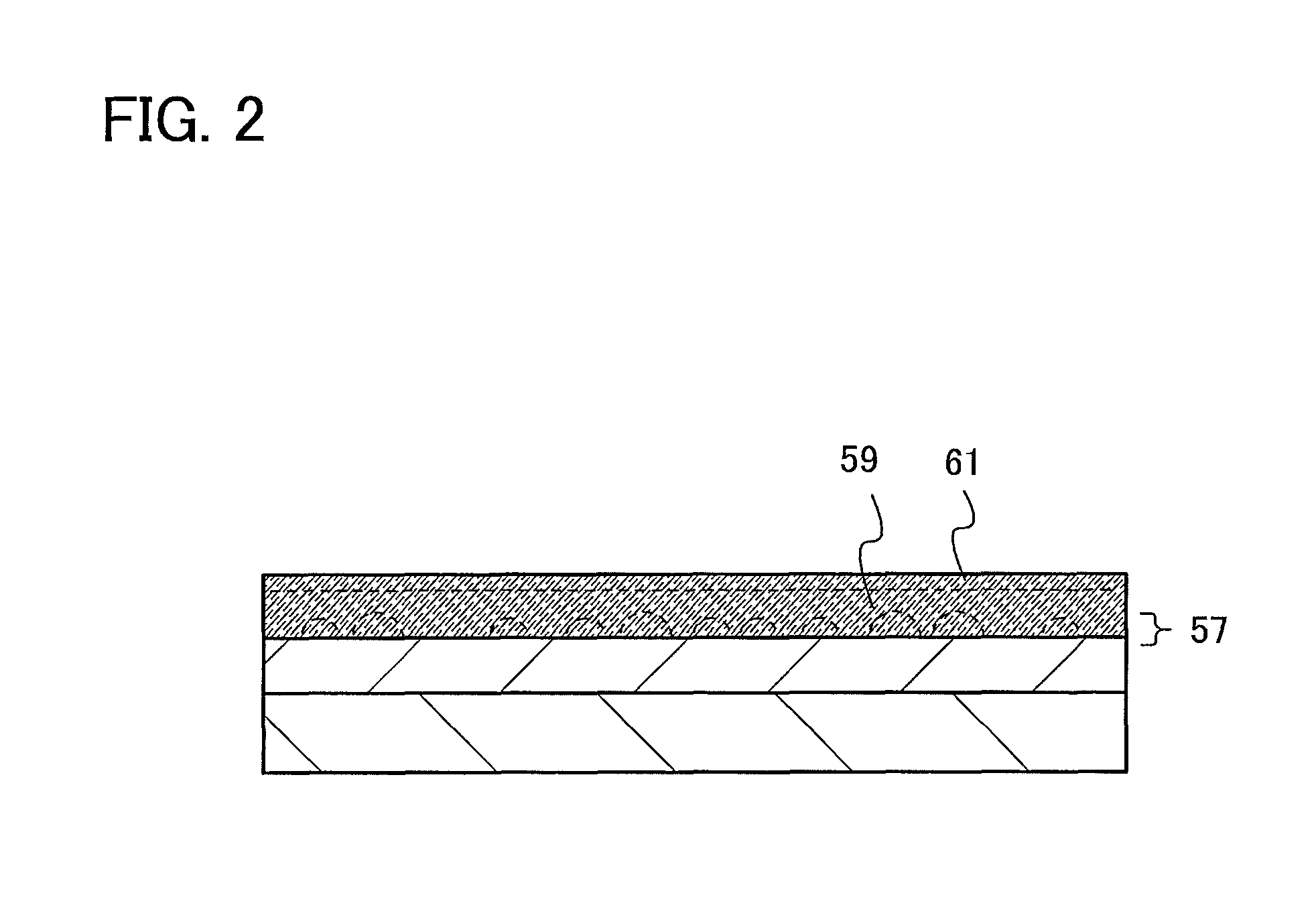Microcrystalline silicon film, manufacturing method thereof, semiconductor device, and manufacturing method thereof
a microcrystalline silicon and film technology, applied in the direction of coatings, transistors, chemical vapor deposition coatings, etc., can solve the problems of low field-effect mobility and low on-state current, high manufacturing cost, and inability to obtain sufficient switching characteristics, etc., to achieve high crystallinity, high production efficiency, and favorable electric characteristics
- Summary
- Abstract
- Description
- Claims
- Application Information
AI Technical Summary
Benefits of technology
Problems solved by technology
Method used
Image
Examples
embodiment 1
(Embodiment 1)
[0044]In this embodiment, a manufacturing method of a microcrystalline silicon film having high crystallinity will be described with reference to FIGS. 1A and 1B.
[0045]As illustrated in FIG. 1A, an insulating film 55 is formed over a substrate 51, and a first microcrystalline silicon film 57 which includes mixed phase grains 57a including silicon crystallites and amorphous silicon is formed over the insulating film 55 using a plasma CVD method.
[0046]As the substrate 51, a glass substrate, a ceramic substrate, or the like can be used. Note that there is no limitation on the size of the substrate 51. For example, any of glass substrates of the 3rd to 10th generations which are often used in the field of the above flat panel displays can be used.
[0047]The insulating film 55 can be formed as a single layer or a stacked layer using a silicon nitride film or a silicon nitride oxide film by a CVD method, a sputtering method, or the like.
[0048]The first microcrystalline silico...
embodiment 2
(Embodiment 2)
[0062]In this embodiment, a manufacturing method of a microcrystalline silicon film having higher crystallinity than the microcrystalline silicon film of Embodiment 1 will be described with reference to FIGS. 1A and 1B and FIG. 2.
[0063]In a manner similar to that of Embodiment 1, a first microcrystalline silicon film 57 and a second microcrystalline silicon film 59 are formed through the process of FIGS. 1A and 1B.
[0064]Next, as illustrated in FIG. 2, a third microcrystalline silicon film 61 is formed over the second microcrystalline silicon film 59.
[0065]The third microcrystalline silicon film 61 is formed in a treatment chamber of the plasma CVD apparatus, using plasma generated by glow discharge with the use of a mixture of a deposition gas containing silicon and hydrogen as a source gas under a third condition. Alternatively, the third microcrystalline silicon film 61 may be formed using plasma generated by glow discharge with the use of a mixture of a deposition g...
embodiment 3
(Embodiment 3)
[0067]In this embodiment, a manufacturing method of a thin film transistor formed in a semiconductor device that is an embodiment of the present invention will be described with reference to FIGS. 3A to 3D, FIGS. 4A and 4B, and FIGS. 5A to 5C. Note that an n-channel thin film transistor has higher carrier mobility than a p-channel thin film transistor. In this embodiment, a manufacturing method of an n-channel thin film transistor will be described.
[0068]As illustrated in FIG. 3A, a gate electrode 103 is formed over a substrate 101. Then, a gate insulating film 105 which covers the gate electrode 103 (also referred to as a first gate electrode) is formed. A first microcrystalline silicon film 107 is formed over the gate insulating film 105.
[0069]As the substrate 101, the substrate 51 described in Embodiment 1 can be used as appropriate.
[0070]The gate electrode 103 can be formed in the following manner: a conductive film is formed over the substrate 101 by a sputtering ...
PUM
| Property | Measurement | Unit |
|---|---|---|
| pressure | aaaaa | aaaaa |
| pressure | aaaaa | aaaaa |
| density | aaaaa | aaaaa |
Abstract
Description
Claims
Application Information
 Login to View More
Login to View More - R&D
- Intellectual Property
- Life Sciences
- Materials
- Tech Scout
- Unparalleled Data Quality
- Higher Quality Content
- 60% Fewer Hallucinations
Browse by: Latest US Patents, China's latest patents, Technical Efficacy Thesaurus, Application Domain, Technology Topic, Popular Technical Reports.
© 2025 PatSnap. All rights reserved.Legal|Privacy policy|Modern Slavery Act Transparency Statement|Sitemap|About US| Contact US: help@patsnap.com



